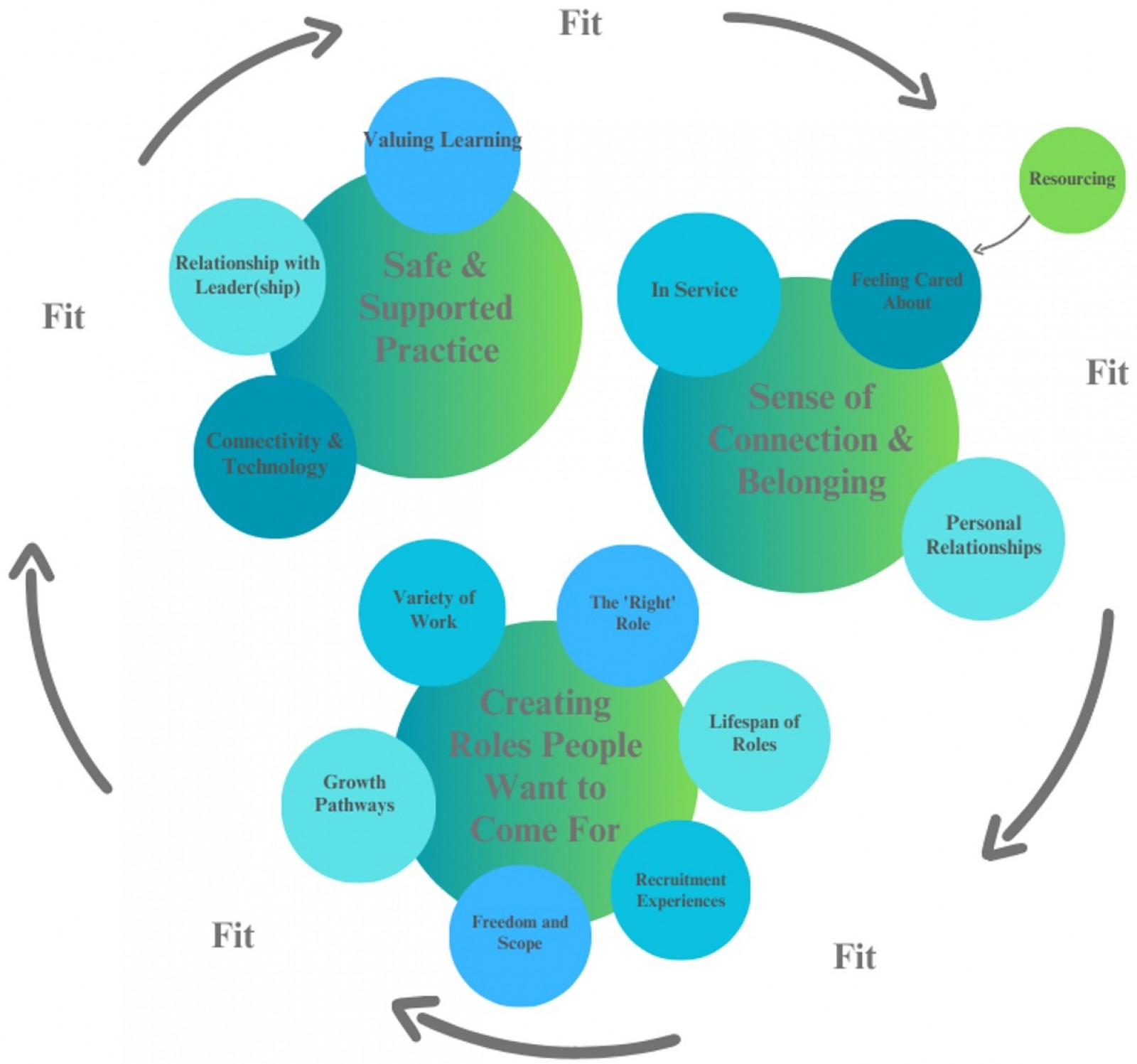Introduction: The recruitment and retention of health professionals in rural and remote locations is a world-wide challenge. Investment to improve the pipeline for medicine and nursing, as well as to attract overseas qualified personnel, has been significant in Aotearoa New Zealand. Those professions collectively known as Allied Health, Scientific & Technical (AHPs), of which there are over 40 separate professions, have not had the same attention or investment, leaving rural communities without access to many of the assessments, treatments and diagnostics that enable people to grow up well, live well and age well.
Methods: The objective of this research was to discover what AHPs identify as the attractive aspects of living and working rurally. The purpose of exploring AHP perspectives was so that their insights and experiences could underpin practical advice and guidance for rural and remote health systems to improve their recruitment and retention experiences and support AHPs to flourish in these settings. Eighteen AHPs from seven professional groups, who lived and/or worked rurally, were interviewed across Aotearoa using video conferencing. Approval for this research was obtained via the Auckland University of Technology Ethics Committee (30 January 2019; reference number 18/424).
Results: Three key themes were constructed: ‘Sense of Connection & Belonging’; ‘Safe & Supported Practice’; and ‘Creating Roles People Want to Come For’. These were woven with an integrative theme: ‘Fit’ (Fig1).
 Figure 1: Themes
Figure 1: Themes
Discussion: The findings contain rich suggestions of how AHPs can be attracted to, and retained in, rural health settings. The research also highlights several key areas specific to line managers, recruiters, employing organisations, tertiary providers, professional associations and registering bodies, where action can be taken to improve the experiences of AHPs in rural areas.
Keywords: allied health professionals, health, recruitment and retention, rural and remote.



